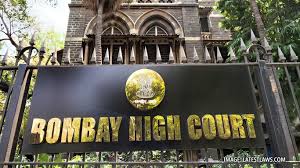1. The petitioners as plain-tiffs sued four defendants for redemption and the recovery of Its. 4,000 odd, being the arrears of rents and profits due to them under a zur-i-peshgi lease. The second and third defendants did not contest the suit. The first and fourth defendants were alleged to be assignees from the second and third defendants, or rather the first defendant was said to be an assignee from the second and third defendants and to have transferred his interest to the fourth defendant. The first and fourth defendants pleaded that they had nothing to do with the mortgage, but admitted that they had, by a subsequent private arrangement, been put in possession of two of the mortgaged villages.
2. After a keen contest, the Court below found that the statement of the first and fourth defendants was true; and in decreeing the suit against the 2nd and 3rd defendants ex parte, it directed that the rents and profits should be recovered from them alone, and that the 1st and 4th defendants should merely be required to yield up possession of the two villages occupied by them. This decree the petitioners did not appeal against. On the contrary, they accepted it and actually executed it by obtaining possession of the two villages from the 1st and 4th defendants.
3. The 2nd and 3rd defendants, however, moved to have the ex parte decree against them set aside, and the lower Court set it aside accordingly. The question whether it ought also to be set aside in so far as the 1st and 4th defendants were concerned, was very carefully considered by it, and it was deliberately held that it would be most inequitable, as the lower Court put it, to require those defendants "to fight the battle over again after their victory".
4. The petitioners have obtained the present Rule against the opposite party to show cause why the whole decree should not be set aside; and we are of opinion that the relief they seek, cannot for the following reasons be granted.
5. First, there is really no question of jurisdiction or irregular exercise of jurisdiction within the meaning of Section 115, Civil Procedure Code. The Court below clearly had jurisdiction, and it certainly did not exercise it arbitrarily. No doubt, this Court has still wider powers of interference u/s 15 of the Charter: but, having regard to the fact that the petitioners were satisfied with their decree against the 1st and 4th defendants and, as we have said, put it in execution, we are not disposed to interfere in the exercise of those powers by setting the decree aside now in so far as those defendants are concerned.
6. In the second place, the real object of this Rule is to set aside that part of the decree which was in favour of the 1st and 4th defendants; and, we are inclined to think that that can hardly be done under the proviso to Order IX, Rule 13. It is there laid down that, where the decree is of such a nature that it cannot be set aside only as against the defendants who did not appear, it may be set aside against all or any of the other defendants also. As we have said, this does not seem to cover the case of a decree in so far as it is in favour of the contesting defendants, nor in this instance is it clear that the decree was of such a nature that it could not be set aside against the non-appearing defendants only.
7. Finally, the 1st and 4th defendants had no notice of the application made under Order IX, Rule 13, and were apparently no parties to that proceeding: and on first principles, it seems to us that the Court below could not have passed an order prejudicial to them behind their backs.
8. The result, therefore, is that this Rule must be discharged with costs. We assess the hearing fee at two gold mohurs.

